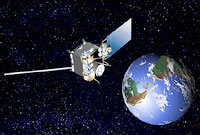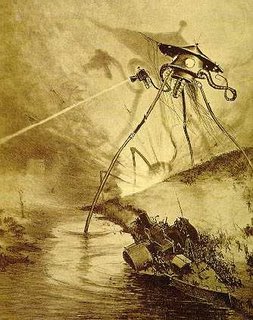
In August of 2006, President George W. Bush asserted the U. S. right to "freedom of action in space...the right to "deny, if necessary, adversaries the use of space capabilities hostile to U.S. national interests."
It now seems that the Bush Administration will have to determine the exact boundary of those "national interests" as regards China. The magnitude of interest payments to Chinese bondholders, and the quantity of U.S. currency held by Chinese banks may become a factor in these deliberations.

What's in it for China? Politically, what does the Chinese ASAT test mean?
- Perhaps it is a signal urging restraint on U.S. expansionism (e.g., war with Iran), a warning deemed useful after November 7th.
- Perhaps it is a self-promotional signal to the international community, to elevate the esteem for China by those who shudder under the shadow of U.S. power.
- Perhaps it is a signal from an anxious major investor to a reckless corporate adventurer, to moderate actions that might jeopardize principal -- it would not do for prized American war bonds to collapse.
- Perhaps it is a Chinese vote of confidence in a new space demilitarization regime. Perhaps, though this is very unlikely, it is an assertion of Chinese aggressiveness in a "space war."
- (perhaps) instead a clear yet subdued statement on the protection of Chinese "national interests" as regards access to the Earth's resources.

- it points to an easy "WMD" that might be developed by others, and deployed against U.S. and international space assets...the development of an ASAT capability rests on the integration of easily acquired technologies: aerospace electronics, computers and missiles.
- it would not be beyond the reach of small nations, well-funded national groups, and corporations. The pejorative terms "rogue states" and "terrorist groups" have been applied to such entities (the specific mapping of pejorative to entity depending on bias)
No comments:
Post a Comment